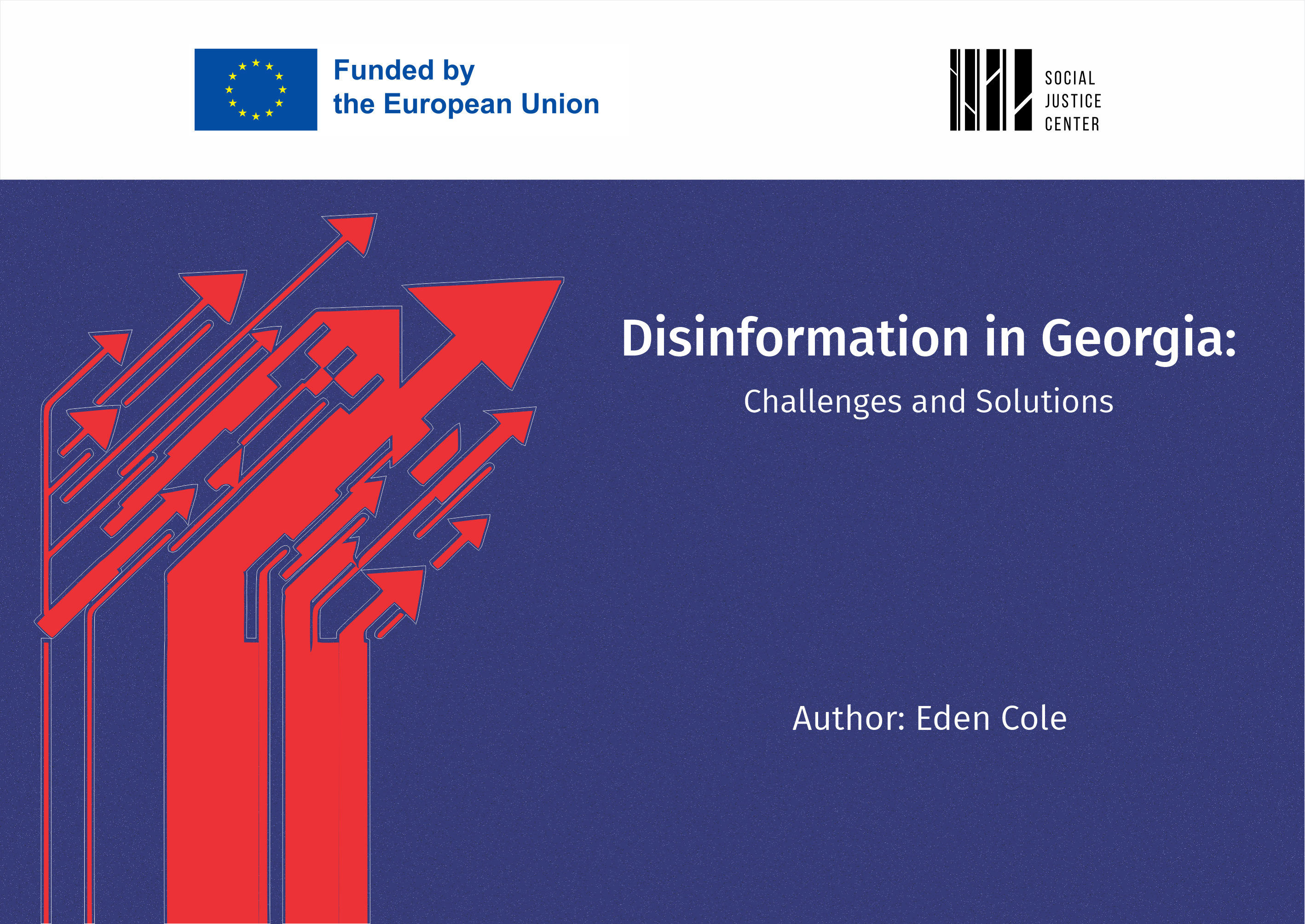საერთო ცხელი ხაზი +995 577 07 05 63


Introduction
The concept of disinformation refers to false, inaccurate, or misleading information that is presented and disseminated in order to cause harm to the public or to make a profit.[1] Disinformation and propaganda are now acknowledged as threats to democratic practices in many states. The aggressive use of disinformation such as micro-targeted disinformation campaigns, deepfake technologies, and influence operations has created doubt and uncertainty about economic, political, and societal developments, and aggressively pushed narratives designed to undermine confidence in democratic processes, institutions, and individuals. In some instances, the aim of spreading disinformation is simply to make an individual doubt whether they know who is really telling the truth about a particular issue echoing the growing influence of post-truth politics.[2] In others, the objective is to change an individual’s opinions and beliefs. This strategy has been used by external actors to polarize societies and undermine trust in political processes, and also by domestic actors for political gains .
The increase in disinformation on social media platforms has had a negative effect on politics and society across the Euro-Atlantic space. This has driven states and international organizations to develop solutions in response to the threat. In particular, states have developed various codes of practice and guidelines and the non-profit sector has networked with other like-minded organizations at regional and international levels to document and respond to disinformation. Companies in the private sector have also responded to the negative developments, and mainstream media organizations have also begun to address the issue. Media organizations have also tried to develop internal capacities to identify and highlight disinformation. Civil society organizations and non-profits have taken a key lead role in countering disinformation. While no one has identified a perfect solution, these collective efforts contribute to limiting the reach and impact of disinformation.
Over the last few years, Georgia has been affected by an increase in disinformation. In the general population, disinformation has served to polarise society, targeting minority groups and a range of personalities outside the ruling party. The problem has become so widespread that large social media companies such as Meta’s Facebook platform have unilaterally taken action against inauthentic activity by accounts pushing disinformation. Ultimately, Georgia’s response to the disinformation challenge may not only determine its democratic future, but its future inside – or outside – Europe.
This short paper outlines various disinformation challenges in Georgia and then addresses some of the international solutions used to counter disinformation.
[1] Colomina, C., Margalef, S., Youngs, R. (2021). The impact of disinformation on democratic processes and human rights in the world. The European Parliament, p.5. Available at: https://cutt.ly/gw9Dr5V6. Accessed 25 Mar. 2024.
[2] Dorosh, L., Astramowicz-Leyk, T. and Turchyn, Y. (2021). The impact of post-truth politics as a hybrid information influence on the status of international and national security: the attributes of interpretation and the search for counteraction mechanisms, p 5. Available at: https://cutt.ly/Gw9C75ww. Accessed 25 Mar. 2024.
The website accessibility instruction